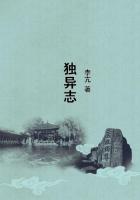The same thing might perhaps have been said of John Quincy Adams, but in him his associates averred that it was accompanied by mental restlessness and often by lamentable want of judgment. No one ever charged Charles Francis Adams with this fault. The critics charged him with just the opposite defect.
They called him cold. No doubt, such perfect poise -- such intuitive self-adjustment -- was not maintained by nature without a sacrifice of the qualities which would have upset it. No doubt, too, that even his restless-minded, introspective, self-conscious children who knew him best were much too ignorant of the world and of human nature to suspect how rare and complete was the model before their eyes. A coarser instrument would have impressed them more.
Average human nature is very coarse, and its ideals must necessarily be average. The world never loved perfect poise. What the world does love is commonly absence of poise, for it has to be amused. Napoleons and Andrew Jacksons amuse it, but it is not amused by perfect balance. Had Mr. Adams's nature been cold, he would have followed Mr. Webster, Mr. Everett, Mr. Seward, and Mr. Winthrop in the lines of party discipline and self-interest.
Had it been less balanced than it was, he would have gone with Mr. Garrison, Mr. Wendell Phillips, Mr. Edmund Quincy, and Theodore Parker, into secession.
Between the two paths he found an intermediate one, distinctive and characteristic -- he set up a party of his own.
This political party became a chief influence in the education of the boy Henry in the six years 1848 to 1854, and violently affected his character at the moment when character is plastic. The group of men with whom Mr. Adams associated himself, and whose social centre was the house in Mount Vernon Street, numbered only three: Dr. John G. Palfrey, Richard H. Dana, and Charles Sumner. Dr. Palfrey was the oldest, and in spite of his clerical education, was to a boy often the most agreeable, for his talk was lighter and his range wider than that of the others; he had wit, or humor, and the give-and-take of dinner-table exchange. Born to be a man of the world, he forced himself to be clergyman, professor, or statesman, while, like every other true Bostonian, he yearned for the ease of the Athenæum Club in Pall Mall or the Combination Room at Trinity. Dana at first suggested the opposite; he affected to be still before the mast, a direct, rather bluff, vigorous seaman, and only as one got to know him better one found the man of rather excessive refinement trying with success to work like a day-laborer, deliberately hardening his skin to the burden, as though he were still carrying hides at Monterey. Undoubtedly he succeeded, for his mind and will were robust, but he might have said what his lifelong friend William M. Evarts used to say: "I pride myself on my success in doing not the things I like to do, but the things I don't like to do."
Dana's ideal of life was to be a great Englishman, with a seat on the front benches of the House of Commons until he should be promoted to the woolsack; beyond all, with a social status that should place him above the scuffle of provincial and unprofessional annoyances; but he forced himself to take life as it came, and he suffocated his longings with grim self-discipline, by mere force of will. Of the four men, Dana was the most marked. Without dogmatism or self-assertion, he seemed always to be fully in sight, a figure that completely filled a well-defined space. He, too, talked well, and his mind worked close to its subject, as a lawyer's should; but disguise and silence it as he liked, it was aristocratic to the tenth generation.
In that respect, and in that only, Charles Sumner was like him, but Sumner, in almost every other quality, was quite different from his three associates -- altogether out of line. He, too, adored English standards, but his ambition led him to rival the career of Edmund Burke. No young Bostonian of his time had made so brilliant a start, but rather in the steps of Edward Everett than of Daniel Webster. As an orator he had achieved a triumph by his oration against war; but Boston admired him chiefly for his social success in England and on the Continent; success that gave to every Bostonian who enjoyed it a halo never acquired by domestic sanctity.
Mr. Sumner, both by interest and instinct, felt the value of his English connection, and cultivated it the more as he became socially an outcast from Boston society by the passions of politics. He was rarely without a pocket-full of letters from duchesses or noblemen in England. Having sacrificed to principle his social position in America, he clung the more closely to his foreign attachments. The Free Soil Party fared ill in Beacon Street. The social arbiters of Boston -- George Ticknor and the rest -- had to admit, however unwillingly, that the Free Soil leaders could not mingle with the friends and followers of Mr. Webster. Sumner was socially ostracized, and so, for that matter, were Palfrey, Dana, Russell, Adams, and all the other avowed anti-slavery leaders, but for them it mattered less, because they had houses and families of their own; while Sumner had neither wife nor household, and, though the most socially ambitious of all, and the most hungry for what used to be called polite society, he could enter hardly half-a-dozen houses in Boston. Longfellow stood by him in Cambridge, and even in Beacon Street he could always take refuge in the house of Mr. Lodge, but few days passed when he did not pass some time in Mount Vernon Street. Even with that, his solitude was glacial, and reacted on his character. He had nothing but himself to think about. His superiority was, indeed, real and incontestable; he was the classical ornament of the anti-slavery party; their pride in him was unbounded, and their admiration outspoken.














